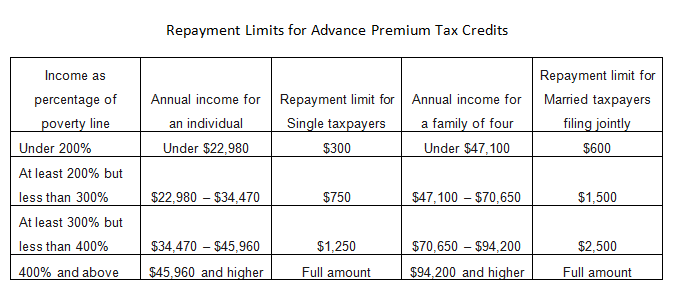Premium Tax Credit. You may be eligible to claim the premium tax credit (PTC). The PTC is a tax credit for certain people who enroll, or whose family member enrolls, in a qualified health plan offered through a Health Insurance Marketplace (also called an Exchange). The PTC provides financial assistance to pay the premiums by reducing the amount of tax you owe, giving you a refund, or increasing your refund amount. Advance payment of the PTC may be made through the Marketplace directly to your insurance provider. If you received premium assistance through advance payments of the PTC in 2015, and the amount advanced exceeded the amount of PTC you can take, you could be subject to a penalty for underpaying your estimated tax. For example, you completed Form 8962, Premium Tax Credit, and have additional income tax liability because too much was advanced to your insurance provider.
Who Must Pay the Underpayment Penalty
In general, you may owe the penalty for 2015 if the total of your withholding and timely estimated tax payments did not equal at least the smaller of:
1. 90% of your 2015 tax, or
2. 100% of your 2014 tax. (Your 2014 tax return must cover a 12-month period.)
Special rules for certain individuals. Different percentages are used for farmers and fishermen, and certain higher income taxpayers.

